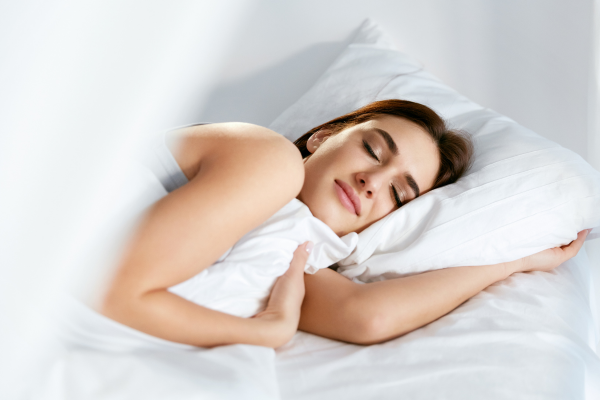In a world that often seems to never sleep, the importance of a good night’s sleep cannot be overstated. Quality sleep is vital for overall health and well-being, influencing physical health, mental clarity, and emotional resilience. However, many individuals struggle with sleep-related issues, from difficulty falling asleep to restless nights. In this article, we will explore the concept of sleep hygiene and provide practical tips to enhance the quality of your sleep, promoting a restful and rejuvenating night.
Understanding Sleep Hygiene
1. What is Sleep Hygiene?
Sleep hygiene refers to a set of practices and habits that promote good sleep quality and help prevent sleep disorders. It encompasses a range of factors, from the sleep environment to daily routines and lifestyle choices. By adopting healthy sleep hygiene practices, individuals can create an environment conducive to restful sleep and develop habits that support optimal sleep patterns.
2. The Impact of Sleep on Health
Quality sleep is essential for overall health and functioning. Lack of sleep or poor sleep quality is linked to a variety of health issues, including cardiovascular problems, weakened immune function, mood disorders, and impaired cognitive performance. Adequate and restful sleep is fundamental for the body’s recovery, repair, and the consolidation of memories.
Practical Tips for Better Sleep Hygiene
1. Create a Comfortable Sleep Environment
– Mattress and Pillows: Invest in a comfortable mattress and pillows that provide adequate support for your body.
– Temperature and Ventilation: Keep your bedroom cool and well-ventilated. Adjust the room temperature to a level that suits your preferences.
– Dark and Quiet: Ensure that your sleep environment is dark and quiet. Consider using blackout curtains and earplugs if necessary.
2. Establish a Consistent Sleep Schedule
– Regular Bedtime: Go to bed and wake up at the same time every day, even on weekends. This helps regulate your body’s internal clock.
– Avoid Naps: If possible, avoid long or late-afternoon naps, as they can interfere with your nighttime sleep.
3. Mind Your Bedtime Routine
– Relaxing Activities: Engage in calming activities before bedtime, such as reading a book, taking a warm bath, or practicing relaxation exercises.
– Screen-Free Zone: Minimize exposure to screens (phones, tablets, computers) at least an hour before bedtime, as the blue light emitted can interfere with melatonin production.
4. Watch Your Diet and Hydration
– Limit Caffeine and Nicotine: Avoid consuming caffeinated beverages or nicotine close to bedtime, as they can disrupt sleep patterns.
– Moderate Evening Meals: Have a balanced and moderate-sized dinner a few hours before bedtime. Avoid heavy or spicy meals that may cause discomfort.
– Stay Hydrated: While it’s important to stay hydrated, limit excessive fluid intake close to bedtime to minimize disruptions for bathroom visits.
5. Exercise Regularly
– Morning or Afternoon Exercise: Engage in regular physical activity, preferably in the morning or afternoon. Exercise promotes better sleep but avoid intense workouts close to bedtime.
6. Manage Stress and Anxiety
– Relaxation Techniques: Practice relaxation techniques such as deep breathing, meditation, or mindfulness to manage stress and calm your mind.
– Journaling: Write down your thoughts or concerns in a journal before bedtime to help clear your mind.
7. Limit Stimulants and Alcohol
– Alcohol Moderation: While alcohol may initially make you feel drowsy, it can disrupt sleep patterns later in the night. Consume alcohol in moderation.
– Stimulant Timing: Be mindful of the timing of stimulants like caffeine. Avoid them in the hours leading up to bedtime.
8. Seek Natural Light Exposure
– Daytime Exposure: Get exposure to natural light during the day, especially in the morning. This helps regulate your body’s circadian rhythm.
Common Sleep Challenges and Solutions
1. Insomnia
– Solution: Establish a consistent sleep schedule, create a calming bedtime routine, and limit screen time before bed. If insomnia persists, consult a healthcare professional.
2. Sleep Apnea
– Solution: Seek medical advice for diagnosis and treatment options. Lifestyle changes, such as weight loss and positional therapy, may be recommended.
3. Restless Leg Syndrome (RLS)
– Solution: Adopt a relaxing pre-sleep routine, avoid stimulants, and consider lifestyle changes. Consult a healthcare professional for further guidance.
Conclusion
Quality sleep is not a luxury; it’s a fundamental component of a healthy and fulfilling life. By prioritizing good sleep hygiene practices, you can create an environment conducive to restful nights and wake up feeling refreshed and ready to face the day. Remember that everyone’s sleep needs are unique, so it’s essential to find a routine that works for you. If sleep challenges persist, seeking advice from healthcare professionals can provide personalized solutions to improve your sleep quality and overall well-being. Sweet dreams await those who prioritize and nurture their sleep hygiene.
- Walker, M. P. (2017). Why We Sleep: Unlocking the Power of Sleep and Dreams. Scribner.
- Morin, C. M., & Espie, C. A. (2003). Insomnia: A Clinical Guide to Assessment and Treatment. Kluwer Academic/Plenum Publishers.
- Buysse, D. J. (2014). Sleep health: can we define it? Does it matter? Sleep, 37(1), 9-17. doi: 10.5665/sleep.3298






